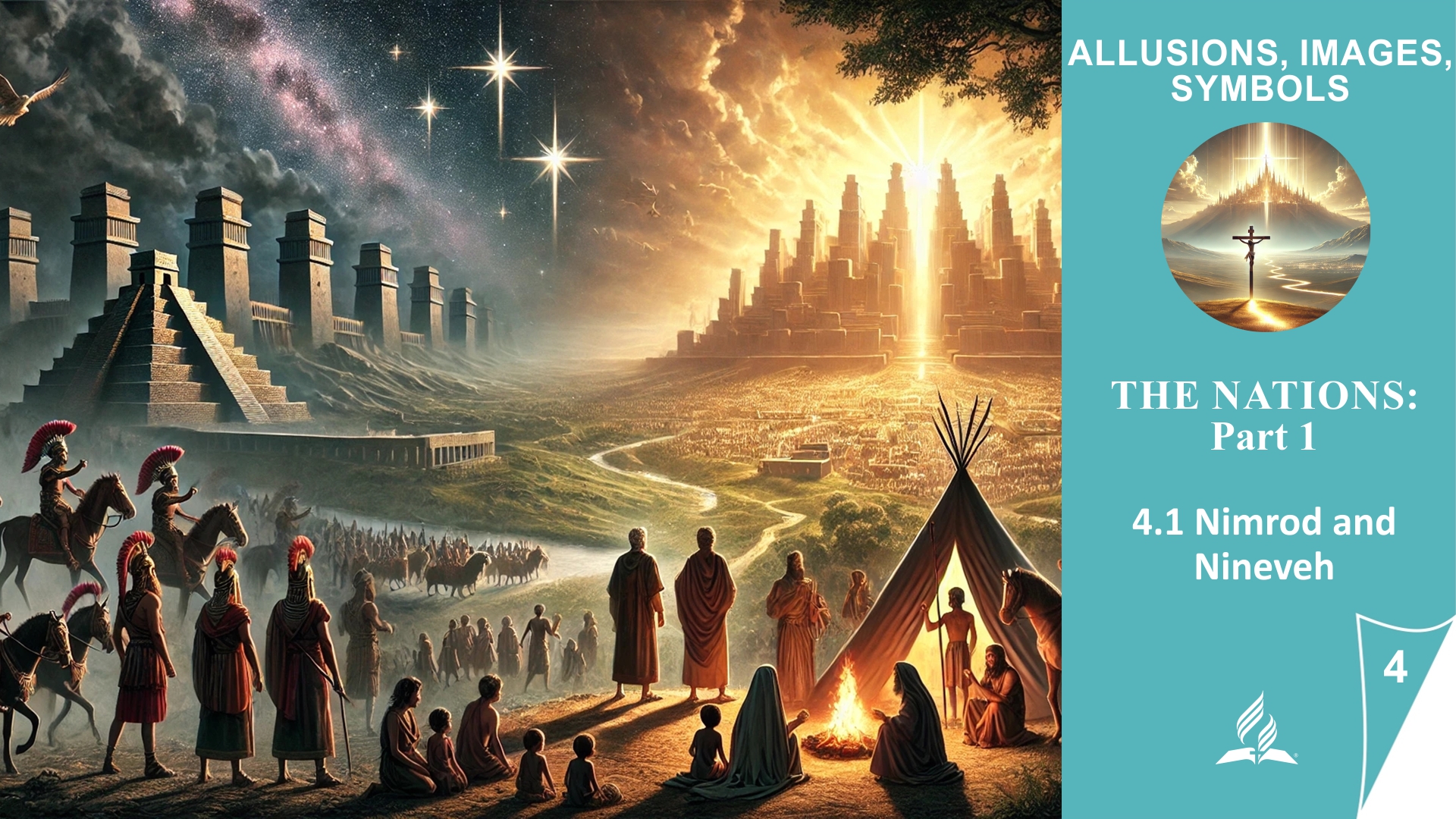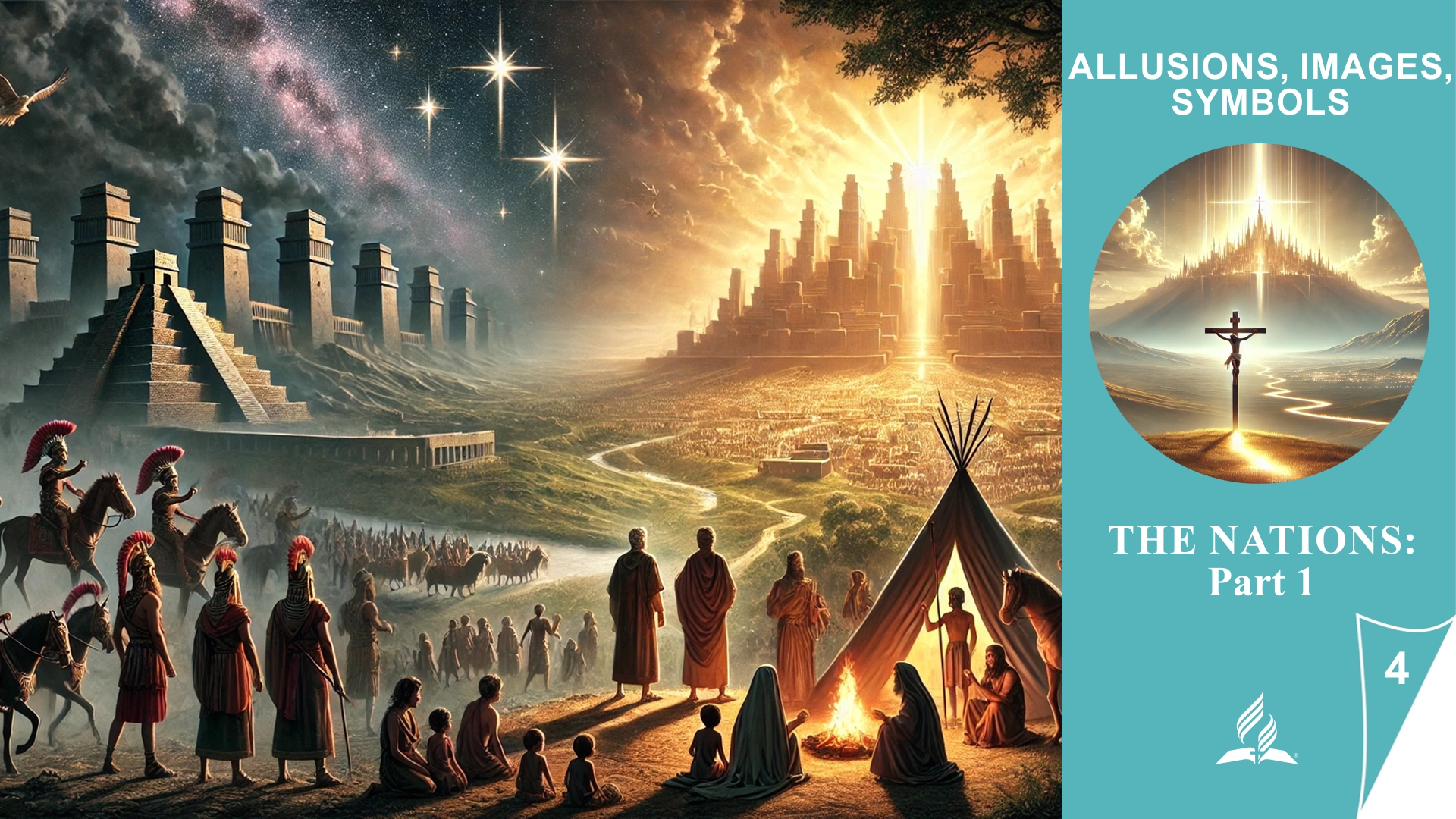


🟦 Introduction – Nations on God’s Stage
Early in Scripture they step into the light: the nations. Names like Babel, Egypt, Assyria, Nineveh, Israel—they appear as characters on a vast stage. And each of these peoples tells more than just their political story. In their origin, their rise, their fall—there lies a deeper message. For they all stand in the shadow of a greater drama: the great conflict between good and evil.
From Nimrod to Nebuchadnezzar, from Abraham to Zion—God shows us through the history of the nations how He works: by calling, by warning, by judgment, but always also by grace.
God did not work only with a small people—but through all the nations. Even the pagan powers, though they set themselves against Him, were used as instruments in His plan. And while humans built kingdoms, God called His people to be different—not like the others, but a light to the others.
This lesson leads us through the roots of rebellion (Nimrod), the call to separation (Abraham), the temptation to conform (Israel’s desire for a king), the danger of political Christianity—all the way to the question: What does it mean today to be a “light to the nations”?
For the stage has not changed. The nations remain. The choices remain.
And God’s call—“Come out from among them, my people”—rings louder than ever.





















